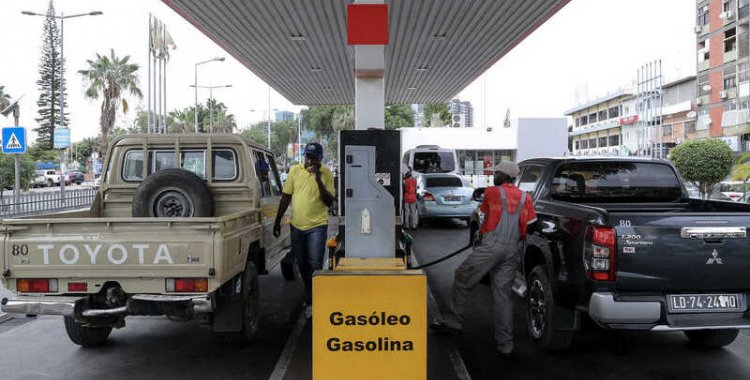"It seems to us that the adjustment assumed in this General State Budget (OGE) is, for now, relatively light, which is supported by the good overall budget situation and by Sonangol's comfort with the solution of tax credits, which makes the resolution of this less urgent matter in terms of the State's treasury and the public oil company", write the economists in a note of analysis to the OGE.
In the document, which Lusa had access to, BFA's economic studies office warns that the amounts that continue to be spent on fuel subsidies regardless of the financial situation of those who use them "are relevant amounts that could be being spent on Education , Health, among others, which makes the subject more important in the medium and long term".
In the general analysis of social expenditure, BFA recognizes that investment in Education, Health, Housing and Social Protection is increasing due to the slack with interest costs, but warns that, compared to the average of other countries in the region with sustained growth , "current levels of spending, measured as a percentage of the economy, are insufficient, and need to continue to increase".
In the note, the BFA says that the OGE for 2023 is "moderately conservative" taking into account the macroeconomic forecasts: "In our perspective, this OGE is, again, a moderately conservative exercise", wrote the analysts in an analysis note on the document , approved this Monday in the National Assembly with favorable votes from the ruling MPLA, PRS, FNLA and PHA, with UNITA voting against the document.
The OGE 2023 estimates revenues and sets expenditures of 20.1 billion kwanzas, of which 13.4 billion kwanzas are tax revenue and 6.6 billion kwanzas are financial revenue.
The document forecasts a weighted average price per barrel of oil of US$75, an estimate that the BFA considers conservative, as economic research institutions point to an average of between US$80 and US$90 per barrel, and the consensus of Bloomberg analysts points to 87.7 dollars per barrel, still above the 85 dollars predicted by the BFA.
"As far as the volume of production is concerned, the Government's forecast for 2023 seems very optimistic", add the analysts in the note sent to Lusa, in which they argue that "in 2023 there should be few new production projects in the sector, which justifies the forecast of "oil production close to 1.10 million barrels per day, well below the 1.18 expected by the OGE".
The Government's macroeconomic scenario predicts economic growth of 3.3 percent, but for BFA the forecast is, again, too optimistic, with the bank's analysts predicting a reduction in expansion to between 1 and 1.5 percent this year, explained by the drop of about 6 percent expected for the oil economy.
The BFA opinion is published a few days after the consultancy Fitch Solutions stated that the withdrawal of fuel subsidies was one of the main political risks this year, warning of the possibility of demonstrations, but without threatening political stability.
"The main political risk in 2023 comes from the gradual withdrawal of fuel subsidies, given that the planned withdrawal of subsidies will increase the price for consumers and influence the purchasing power of families, likely triggering protests", wrote the analysts of this owned consultancy. by the same owners of the financial rating agency Fitch Ratings.
The withdrawal of fuel subsidies was one of the measures most advocated by the International Monetary Fund (IMF) during the last financial adjustment programme, worth more than five billion dollars.
Angola is the fourth country in the world where it is cheaper to fill a fuel tank. While in Europe motorists opt for utility vehicles and take fuel consumption into account at the time of purchase, in Angola, a country endowed with a car park where robust jeeps and 'pickups' abound, this does not seem to be a concern, since almost always cheaper to water the car than quench thirst.
While the average price of 1.5 liters of bottled water is around 180 kwanzas, a liter of gasoline costs 160 kwanzas, that is, five times less than in Portugal, according to the Global Petrol Prices website, with data updated this month.
In the first quarter of 2022 alone, the Government subsidized AOA 339.7 billion in fuel distributed across the country.







